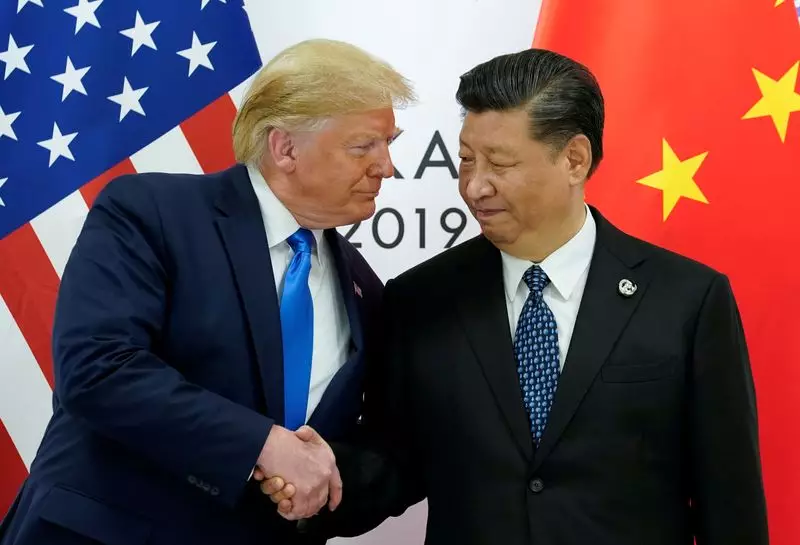In the ever-shifting arena of international politics, the relationship between the United States and China remains a focal point of global concern. With the election of Donald Trump, who has promised a return to his previous tough stance on tariffs, the atmosphere between these two economic giants is charged with uncertainty. The echoes of past confrontations loom large, driving both nations to reconsider their strategies for coexistence.
In a recent display of diplomatic cordiality, Chinese President Xi Jinping extended congratulations to Trump following his election victory. During this communication, Xi emphasized the necessity for both countries to establish a stable and sustainable relationship, suggesting that collaboration is crucial for mutual benefit. Emphasizing the need for dialogue, Xi highlighted the importance of managing differences through conversation rather than confrontation. This approach reflects a desire not only to mend ties but also to mitigate the possibility of a trade war that could disrupt global markets.
The foundation of U.S.-China relations has often been marred by tensions over diverse issues like trade discrepancies, security matters, and territorial conflicts, notably in Taiwan and the South China Sea. The historical context cannot be overlooked; the trade war initiated during Trump’s first term marked a significant pivot in relations, leading to economic hardships for both nations. The temporary truce agreed upon just before the COVID-19 pandemic catalyzed a shift in global dynamics, which is now further complicated by Trump’s resurgence in the political arena.
Trump’s commitment to implementing aggressive tariffs—proposed at levels ranging from 60% on Chinese imports to crippling duties on various sectors—raises alarms within China as its economy grapples with a range of internal pressures, including a deepening real estate crisis and sluggish consumption rates. This environment stands in stark contrast to the protective measures exhibited by the Biden administration that have largely maintained the previous tariffs. In this context, Trump’s return could rekindle fears of an economic downturn driven by renewed trade hostilities.
Amidst these tensions, China’s commerce ministry offered a ray of hope, expressing a willingness to nurture cooperative economic ties with the United States. This statement underscores China’s recognition of the interdependence between the two nations, wherein both can thrive through collaboration rather than conflict. The complexity of global challenges necessitates a pragmatic approach to bilateral relations, as articulated in recent editorials from state-run media, which suggest that the opportunity for a “new beginning” in relations should not be squandered.
The narrative surrounding the U.S.-China relationship highlights a critical component often overlooked—mutual understanding. Misconceptions about each nation’s policies and intentions have historically fueled animosity. Both leaders must foster an environment that prioritizes respect and coexistence, moving forward cautiously yet purposefully. Xi’s call for respecting each other’s sovereignty can serve as a foundation upon which both sides might rebuild trust.
As the world watches with bated breath, the trajectory of U.S.-China relations hangs in the balance, influenced heavily by the forthcoming actions of President Trump and the response of Xi Jinping’s administration. Proceeding with caution and a commitment to dialogue could pave the way for a more stable relationship. The stakes are higher than ever as both nations stand to gain significantly from cooperation amidst the challenges that lie ahead. The question remains whether they will seize the opportunity to forge a new chapter in their complex history or repeat the mistakes of the past.

